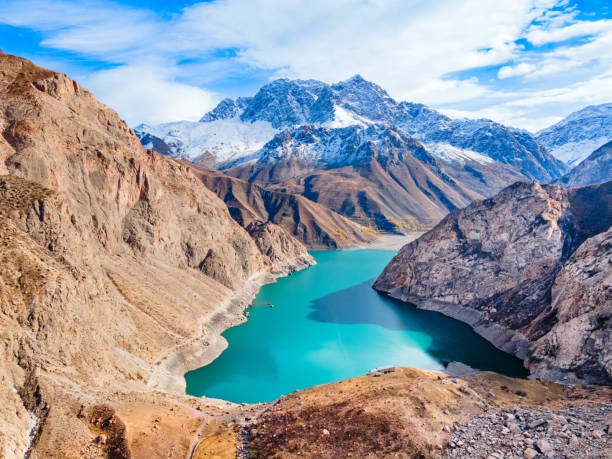BISHKEK (TCA) — The economy of Kyrgyzstan has fallen by 10.7% in January compared to 2015. The Government explained the decline in GDP by reduced gold production at the Kumtor gold mine due to mining in an ore area with low gold content.
“Kumtor makes a significant contribution to the country’s GDP. There was some decline in its production, but in a few months they will start developing an area rich in gold, and this will allow the company to achieve positive dynamics,” the Prime Minister said.
2016 will be even more difficult than the previous year, he added. In 2016, the development of Kyrgyzstan’s economy will depend on the decline in industrial production and a slowdown in economies of its trading partners.
The Government says 10 projects of the National Sustainable Development Strategy until 2017 may remain unfulfilled, including construction of hydro power plants and land reclamation.
Results
On February 12, the Kyrgyz Government discussed and approved the results of social and economic development of the country in 2015. According to Economy Minister Arzybek Kojoshev, despite the negative global trends, the Government’s and the National Bank’s economic policy maintained macroeconomic and social stability in 2015.
The main result of 2015 was economic growth of 3.5%, the minister said. Economic growth was in almost all sectors of the economy, except for the industry.
Among external favorable factors the minister named the continued decline in oil prices and in world prices for basic food commodities, as well as 1.4-fold increase in direct foreign investments.
Among the external negative factors were the economic slowdown in the EEU countries (Russia, Belarus, Kazakhstan and Armenia); high inflation in Kyrgyzstan’s major trade partners — Kazakhstan, Russia, and Belarus; dependence of the domestic market on the import of basic foods including flour, vegetable oil, sugar, and cereals; and the decrease in remittances of Kyrgyz labor migrants by 28.3%.
Internal unfavorable factors were the strengthening of the US dollar against the local currency, the som, by 28.9%, high interest rates of loans for businesses, and the increase in utilities tariffs (electricity and heating).
To smooth sharp fluctuations of the exchange rates, the National Bank made currency interventions, selling $339.1 million and buying $44 million in 2015.
Prospects
To ensure positive economic growth and reduce the dependence on the Kumtor gold project, the Government plans to diversify the economy by launching new deposits and industries, including operating the Taldy-Bulak Left Bank and Bozymchak gold mines at full capacity. The Government also promised to launch the Kambarata-2 hydro power project and small hydroelectric projects, as well as to construct an alternative North-South road and a ring road around Lake Issyk-Kul which will give impetus to the development of industries, agriculture and tourism.
Prime Minister Sariyev set the task for 2016 to ensure economic growth of 5.2%. This must be provided with the growth of industry by 9.6%, agriculture by 2.5%, services by 3.8% and the construction sector by 12%. Sariyev tasked regional governors to open new enterprises and create favorable conditions for business.
According to the Government’s program “Stability, Confidence and New Opportunities”, state-owned enterprises, with the exception of strategic ones, should be either eliminated or transferred into joint-stock companies with further privatization.
Corporate governance principles will be introduced to optimize the financial and economic activity of the state enterprises of strategic importance.
Population protests
Some of the government’s initiatives have caused the population’s discontent. These are, first of all, the introduction of compulsory housing and motor vehicles insurance. People agree that insurance is necessary, but not in this difficult period of continuous unemployment when insurance should be voluntary.
People are also unhappy with an increase in the airport tax from $10 to $15.
Residents of the highlands, as the Naryn province, rallied to protest a bill abolishing allowances for residents of the highlands. Although the Government had rapidly recalled the bill, the dissatisfaction remained.
Many are discontent with the ban on taxi drivers to work without a patent. In the current difficult economic conditions when people have no job or earn meager salaries, they sometimes have to earn money after their main work by working as taxi drivers of their personal cars to support their families.
This week, Kara Jygach villagers in the Jalal-Abad province gathered for a peaceful rally to protest some of the Government’s initiatives. They adopted a resolution which sets out the requirements to restore the former payments to the Social Fund, former electricity tariffs, to resolve border problems (border delimitation), and cancel the compulsory insurance of homes and cars. The villagers promised to gather again in ten days in the regional center Kerben if there is no response from the Government.









